Should Young Children Learn Music Theory?
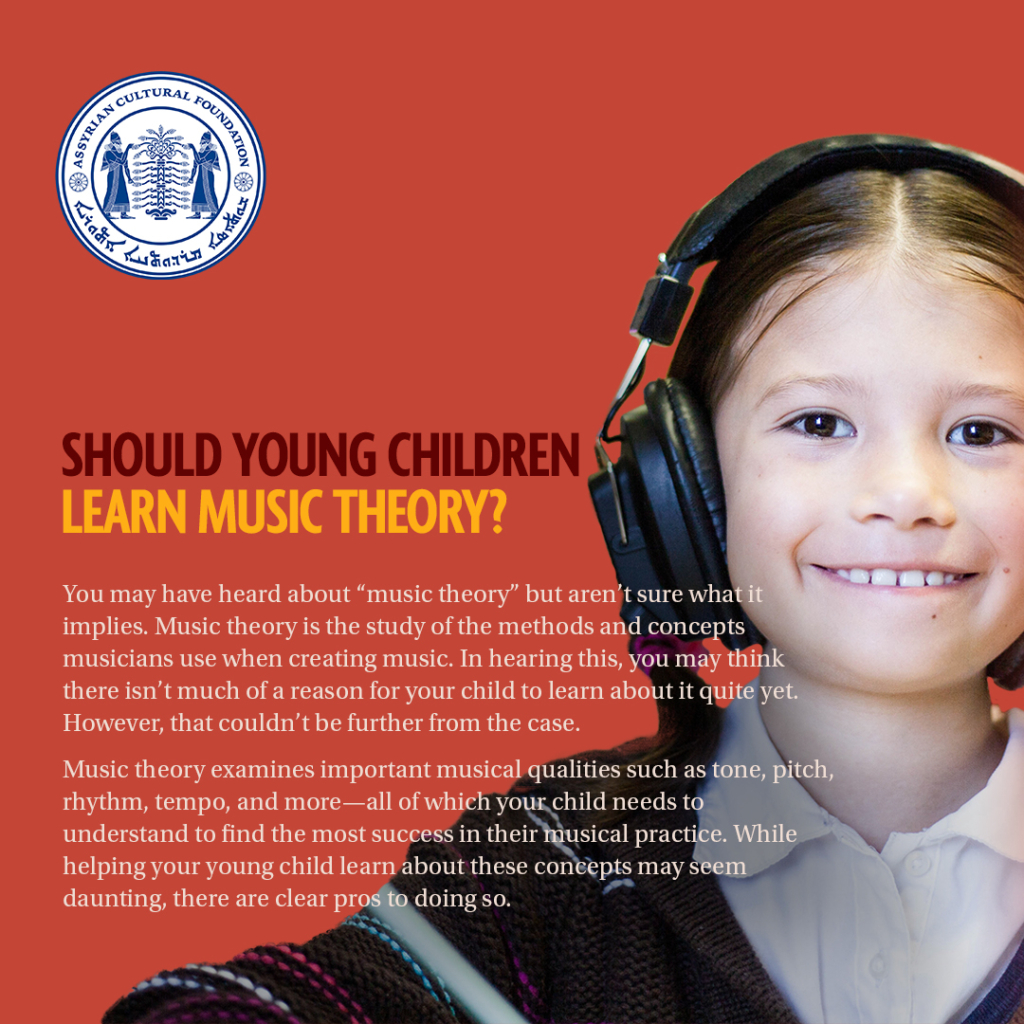
Should Young Children Learn Music Theory?
You may have heard about “music theory” but aren’t sure what it implies. Music theory is the study of the methods and concepts musicians use when creating music. In hearing this, you may think there isn’t much of a reason for your child to learn about it quite yet. However, that couldn’t be further from the case.
Music theory examines important musical qualities such as tone, pitch, rhythm, tempo, and more—all of which your child needs to understand to find the most success in their musical practice. While helping your young child learn about these concepts may seem daunting, there are clear pros to doing so.
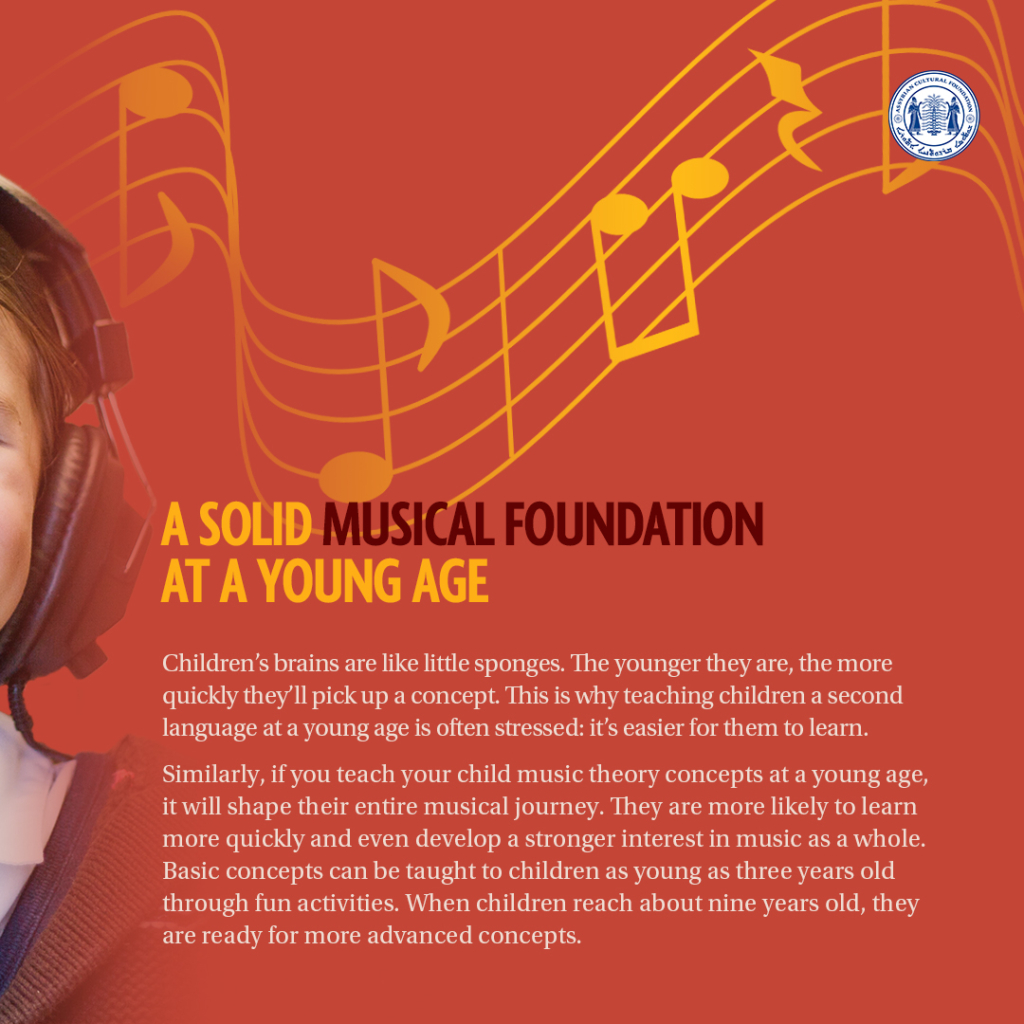
A solid musical foundation at a young age
Children’s brains are like little sponges. The younger they are, the more quickly they’ll pick up a concept. This is why teaching children a second language at a young age is often stressed: it’s easier for them to learn.
Similarly, if you teach your child music theory concepts at a young age, it will shape their entire musical journey. They are more likely to learn more quickly and even develop a stronger interest in music as a whole. Basic concepts can be taught to children as young as three years old through fun activities. When children reach about nine years old, they are ready for more advanced concepts.
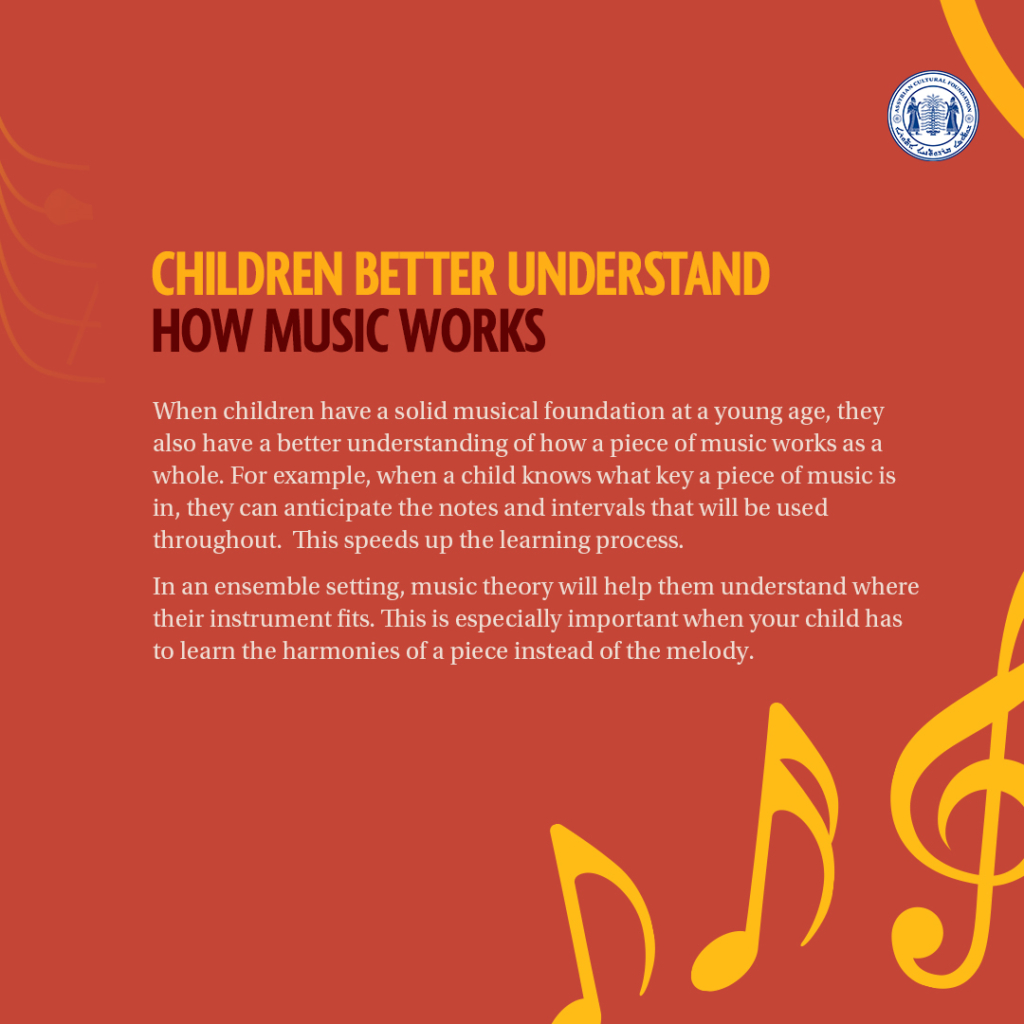
Children better understand how music works
When children have a solid musical foundation at a young age, they also have a better understanding of how a piece of music works as a whole. For example, when a child knows what key a piece of music is in, they can anticipate the notes and intervals that will be used throughout. This speeds up the learning process.
In an ensemble setting, music theory will help them understand where their instrument fits. This is especially important when your child has to learn the harmonies of a piece instead of the melody.
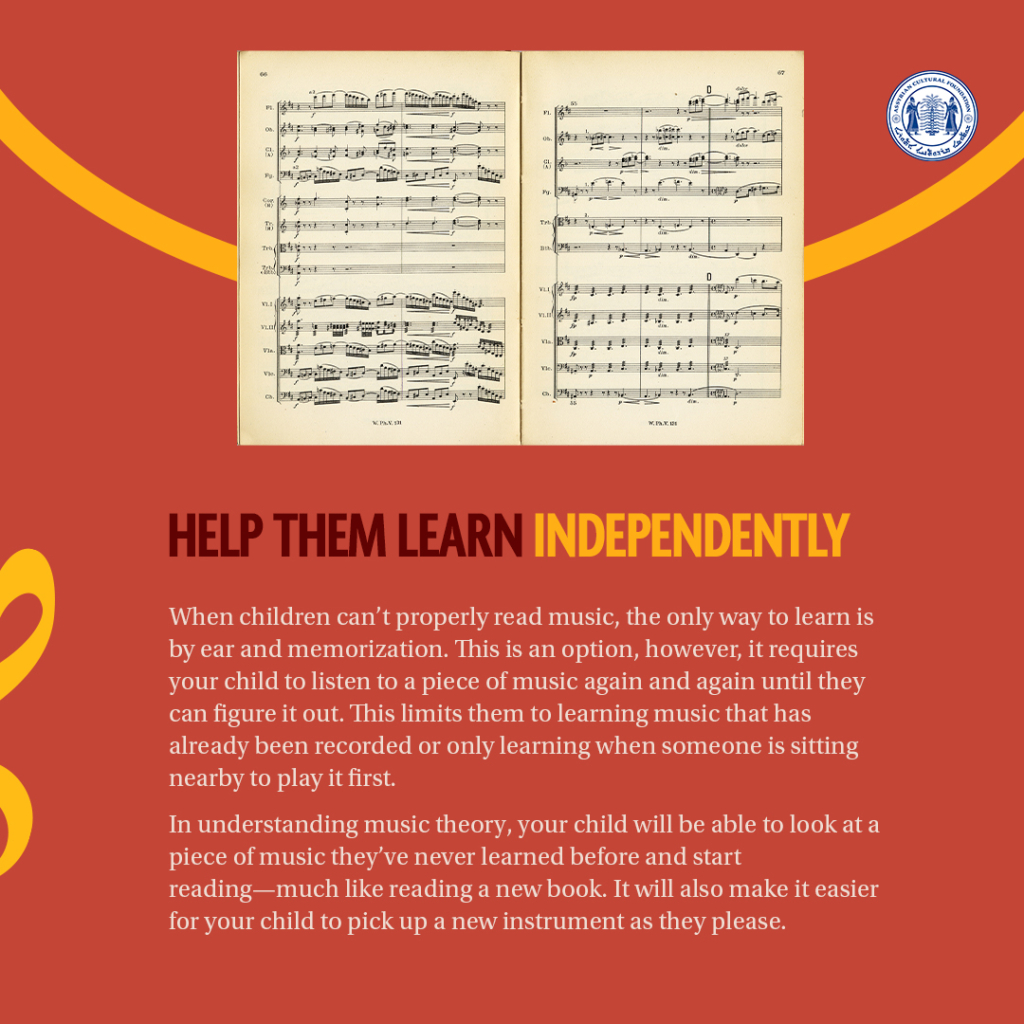
Help them learn independently
When children can’t properly read music, the only way to learn is by ear and memorization. This is an option, however, it requires your child to listen to a piece of music again and again until they can figure it out. This limits them to learning music that has already been recorded or only learning when someone is sitting nearby to play it first.
In understanding music theory, your child will be able to look at a piece of music they’ve never learned before and start reading—much like reading a new book. It will also make it easier for your child to pick up a new instrument as they please.
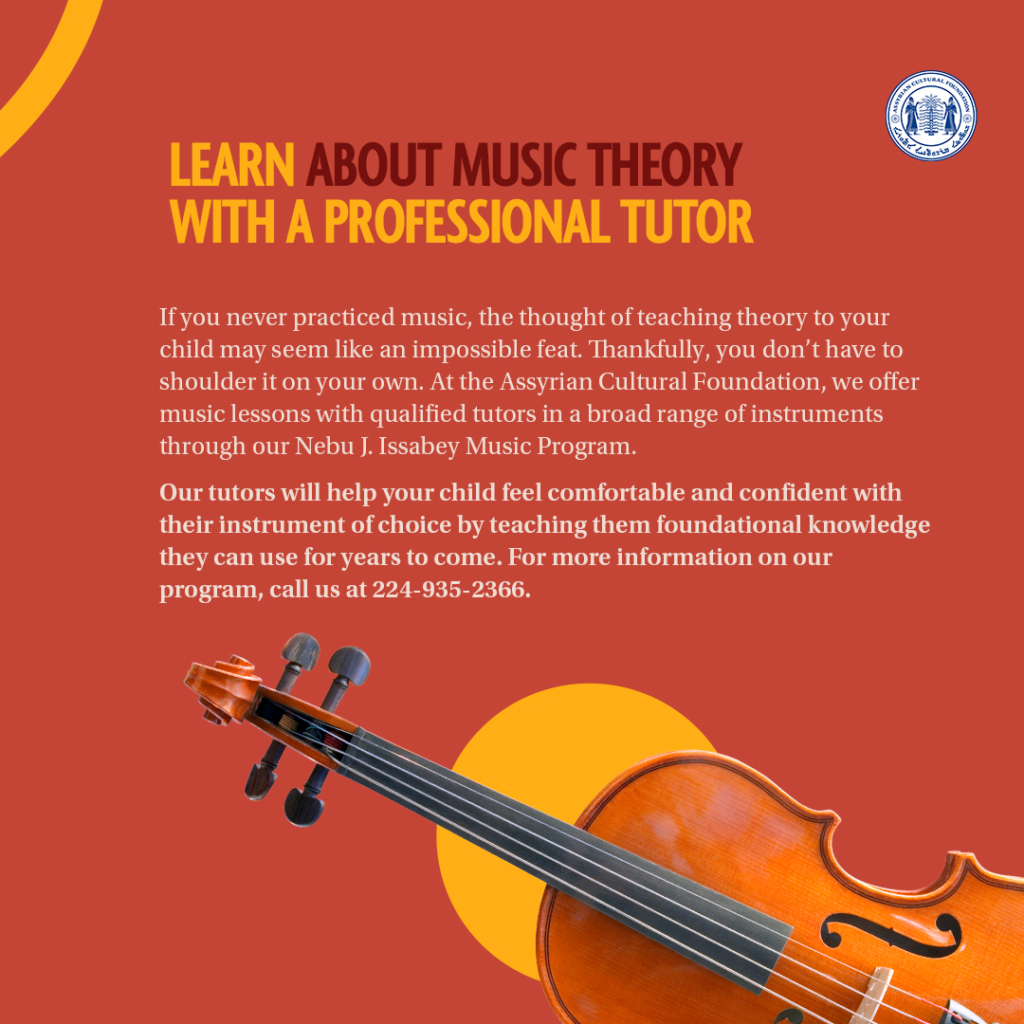
Learn about music theory with a professional tutor
If you never practiced music, the thought of teaching theory to your child may seem like an impossible feat. Thankfully, you don’t have to shoulder it on your own. At the Assyrian Cultural Foundation, we offer music lessons with qualified tutors in a broad range of instruments through our Nebu J. Issabey Music Program.
